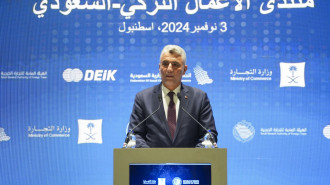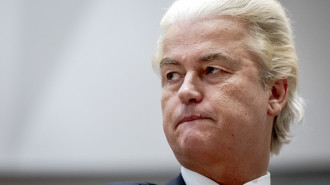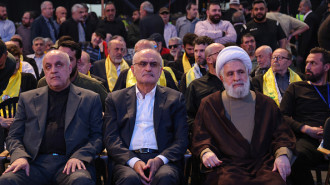Pakistan clerics issue Muslim fatwa forbidding suicide bombings
Pakistan Muslim clerics have come together in the country's latest attempt to clampdown on Islamist violence, declaring suicide bombings as forbidden, 'haram'.
Over 1,800 Muslim clerics issued the Islamic ruling, or fatwa, forbidding suicide bombings in a book unveiled by the government on Tuesday.
Islamist militants often use religious rhetoric, arguing that suicide bombing is acceptable depending on your intention, and claim their struggle is a holy war to impose Islamic rule.
The clerics ruling comes in the hopes of curbing terrorist attacks that have caused tens of thousands of causalities since the early 2000s in the country. Despite suicide attacks being condemned repeatedly as immoral, insurgents view the tactic as their most effective weapon and the South Asian nation has struggled to control the violence.
"This fatwa provides a strong base for the stability of a moderate Islamic society," the Pakistani President Mamnoon Hussain wrote in the book, prepared by the state-run International Islamic University and released at an official ceremony.
"We can seek guidance from this fatwa for building a national narrative in order to curb extremism, in keeping with the golden principles of Islam."
Pakistan has fought fierce campaigns against homegrown Islamist groups, and says it has lost thousands of lives and spent billions of dollars in its long war on extremism.
But US officials accuse Islamabad of ignoring or even collaborating with groups that attack Afghanistan from safe havens along the border between the two countries.
Signatories include clerics that are outspoken critics of liberalism and the West. Muhammad Ahmed Ludhianvi, one of the clerics that signed, is the face of banned sectarian organisation Ahle Sunnat Wal Jamat (ASWJ).
Hamid ul-Haq, regarded as the 'father of the Afghan Taliban' is another signatory.
The United States has been threatening for months to cut aid to Islamabad over its failure to crack down on groups such as the Afghan Taliban and the Haqqani network, which it says operates from bases in Pakistan's northwest.
Earlier in the month, the State Department announced a dramatic freeze in the deliveries of military equipment and security funding until Pakistan cracks down on the militants. The announcement sparked protests in Pakistan.
Relations between the two countries have been tense since New Years Day, when President Trump tweeted his intention to cut security aid to Pakistan, which he alleged to total up to $33 billion over the past 15 years. He ruthlessly accused Pakistan of giving the US "nothing but lies and deceit" in return for the large sums of aid.
Twitter Post
|
Pakistan's Foreign Minister responded to the provocative tweet by ridiculing the figures proffered by the US president. Khawaja Asif said that Trump could hire any US audit firm to verify the $33 billion figure, in order to, "let the world know who is lying and deceiving".







 Follow the Middle East's top stories in English at The New Arab on Google News
Follow the Middle East's top stories in English at The New Arab on Google News


